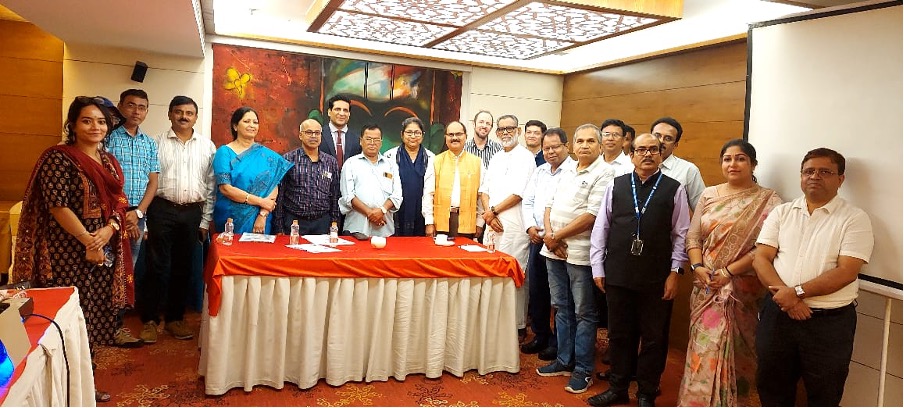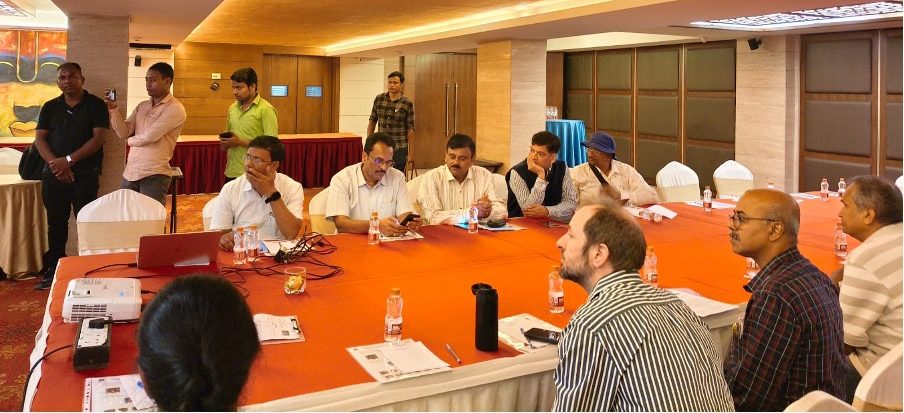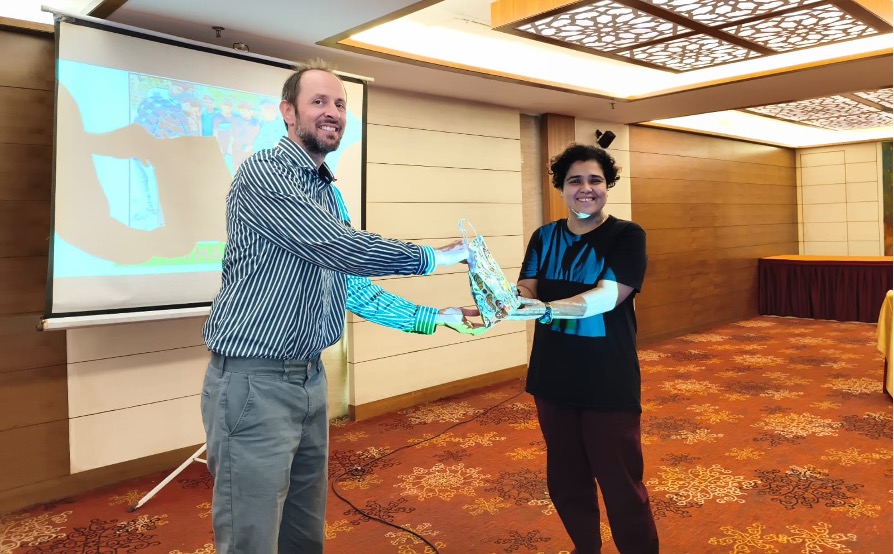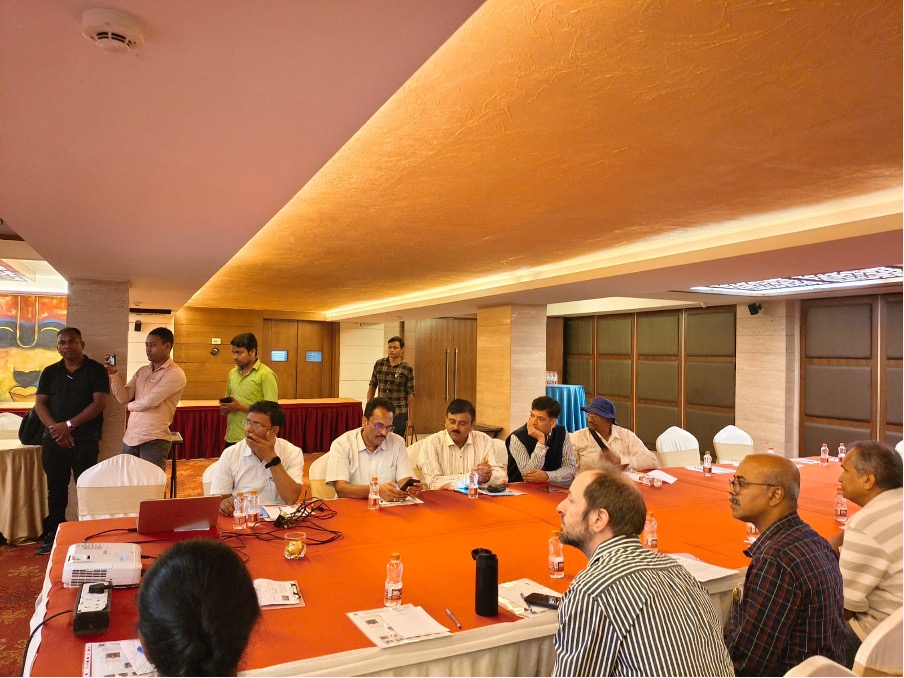Complementary Collectives: Presenting ENGAGE4Sundarbans at the State-level Consultation Workshop
This one-day State-level Consultation Workshop on Collectivised Natural Farming was organised by the School of Geography, Earth and Environmental Sciences of the University of Birmingham, in close partnership with organisations such as the Centre for the Development of Human Initiatives (CDHI), Sakhi Bihar, and Uttar Banga Krishi Viswavidyalaya. Together they have worked and piloted on a transformative model of collectivised farming for creating sustainable and equitable pathways to agricultural prosperity.
This workshop brought together a diverse cohort of researchers, practitioners, policymakers, and community representatives to reflect on a decade of intensive, field-based inquiry into collectivised natural farming. The event was attended by many distinguished guests, including the former Minister for Agriculture of West Bengal; the President of the Indian National Trinamool Trade Union Congress; the Regional Director for South Asia and the Middle East from the University of Birmingham; the Vice-Chancellor of Bidhan Chandra Krishi Viswavidyalaya; as well as representatives from the United Nations Environment Programme (UNEP) and Rythu Sadhikara Samstha (RSS), a key institution in collectivised natural farming in Andhra Pradesh.

Image 1. Cohort of Stakeholders attending the Collectivised Natural Farming Workshop in Kolkata
The presentation by Dr. Jenia Mukherjee, titled “Collectivised Inland Fish Farming as an Economic Wellbeing of Natural Farming in the Indian Sundarbans”, explored the complementary relationship between fishing and farming within the framework of collectivisation. Drawing on the Collectivised Canal Fishing Experimentation (CCFE) under the ENGAGE4Sundarbans project in the island of Kumirmari, Dr. Mukherjee presented a case study that stood out as the only example among the various collectivised agriculture initiatives in the workshop to focus specifically on inland fish farming.

Image 2. Dr. Mukherjee representing ENGAGE4Sundarbans by presenting Collectivised Canal Fishing Experimentation (CCFE) project
Through her presentation, Dr. Mukherjee narrated the evolution of this community-led experiment, describing how each phase of the project organically shaped the trajectory of subsequent interventions. She positioned the initiative as a unique convergence of co-production of knowledge, ethnographic engagement, and scientific methodology.
This approach strongly resonated with the keynote remarks delivered by the former Minister of Agriculture, who emphasised that successful collectivisation must be rooted in a dynamic interplay between theory and practice. He further advocated for deeper collaboration among researchers, policymakers, and practitioners, stressing that communities are more likely to thrive when supported by sustained institutional engagement and inclusive knowledge sharing approaches.

Image 3. Dr. Mukherjee receiving a token of appreciation from Dr. Sugden, University of Birmingham.
One of the key insights from the presentation, as noted by the UNEP Project Lead, was the significant potential for scaling the collectivised canal fishing model. This prospect was also evident in Dr. Mukherjee’s presentation, where she highlighted how community members themselves initiated efforts to maintain the canal ecosystem and integrate traditional practices—such as mulching and cattle rearing—into the collective framework. These community-led actions not only reflect a strong sense of ownership but also indicate a viable pathway for the model’s scalability through locally embedded knowledge and participatory resource management.

Image 4. Stakeholders engaging in shared commitment through collective action
The session concluded with a vibrant Q&A segment, offering delegates an opportunity to engage directly with the presenters, deepen their understanding and reflect on key themes. In his valedictory address, Dr. Fraser Sugden, underscored the cruciality of grounding interventions in local cultural contexts and geographically specific practices to ensure long-term sustainable impacts. He highlighted the value of cross-disciplinary dialogue, such as this workshop, as vital for cultivating integrated, intergenerational and adaptive approaches to natural resource governance. Moving forward, it is recommended that future initiatives continue to prioritise locally informed, community-driven models while nurturing collaboration across research, policy and practice. Such engagements not only strengthen the knowledge base but also build resilient systems that are responsive to the complexities of socio-ecological change.
